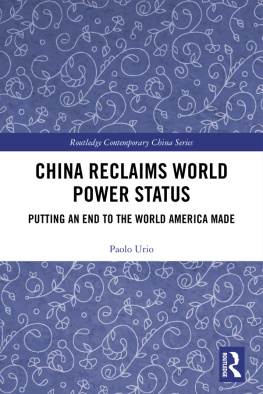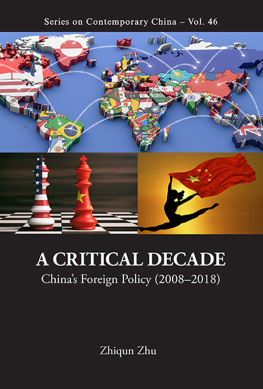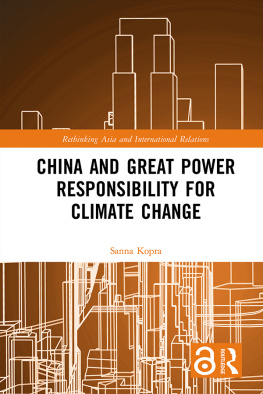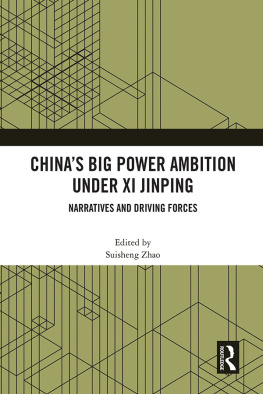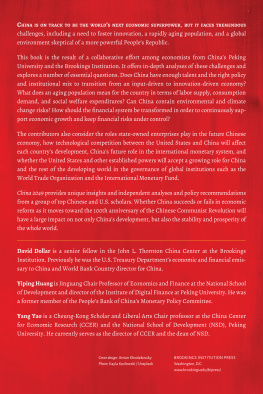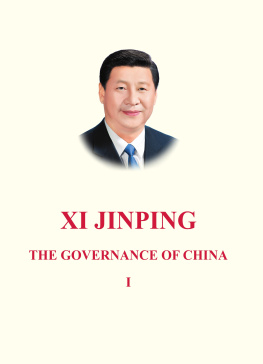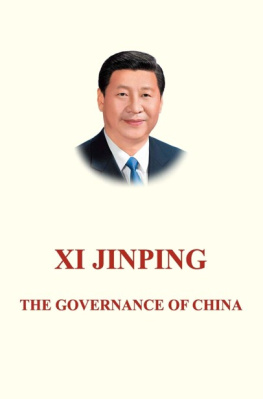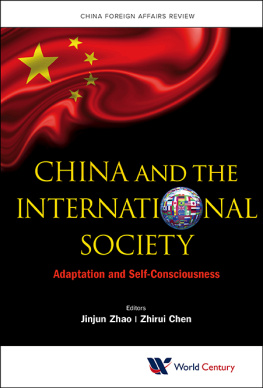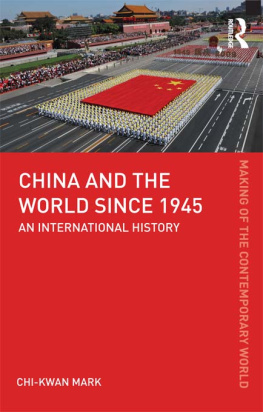Table of Contents
Guide
Print Page Numbers
China Reclaims World Power Status
Using both Chinese and Western theoretical approaches, this book analyses the strategies implemented by China for reclaiming power in the international domain. Examining domestic measures taken by China to assure its economic and social development, it also considers the strengths and weaknesses of its major international opponent, the US, and analyses their competing approaches to developing power resources and leadership dominance. It studies the foreign policies of both China and the US, first by going back to the historical origins of their ideological foundations and secondly by analysing their power building from the nineteenth century to the Trump and Xi Jinping presidencies. Finally, this book focuses on the One Belt One Road Initiative as Chinas response to putting an end to the world America made and debates the question of whether China will emerge as a new capitalist country embedded in the liberal capitalist world system, or as an authoritarian state with a socialist market economy, able to change the rules of the international order.
Providing a comparison of the two major world powers and a comprehensive overview of their relationship, this book will be of great interest to students and scholars of Chinese politics and international relations, as well as Chinese Studies more generally.
Paolo Urio is Professor Emeritus of Public Management at the University of Geneva, Switzerland.
Routledge Contemporary China Series
For our full list of available titles: www.routledge.com/Routledge-Contemporary-China-Series/book-series/SE0768
The Politics of Memory in Sinophone Cinemas and Image Culture
Altering Archives
Edited by Peng Hsiao-yen and Ella Raidel
Chinas Soviet Dream
Propaganda, Culture and Popular Imagination
Yan Li
Deng Xiaoping and Chinas Foreign Policy
Ronald C. Keith
Corporate Social Responsibility Reporting in China
Evolution, Drivers and Prospects
Jieqi Guan and Carlos Noronha
Chinas Generation Gap
Jiaming Sun and Dongmei Cheng
China Reclaims World Power Status
Putting an End to the World America Made
Paolo Urio
The Economic Roots of the Umbrella Movement in Hong Kong
Globalization and the Rise of China
Louis Augustin-Jean and Anthea H.Y. Cheung
Chinas Hydro-Politics in the Mekong
Conflict and Cooperation in Light of Securitization Theory
Sebastian Biba
China Reclaims World Power Status
Putting an End to the World America Made
Paolo Urio
First published 2018
by Routledge
2 Park Square, Milton Park, Abingdon, Oxon OX14 4RN
and by Routledge
711 Third Avenue, New York, NY 10017
Routledge is an imprint of the Taylor & Francis Group, an informa business
2018 Paolo Urio
The right of Paolo Urio to be identified as the author of this work has been asserted by him in accordance with sections 77 and 78 of the Copyright, Designs and Patents Act 1988.
All rights reserved. No part of this book may be reprinted or reproduced or utilized in any form or by any electronic, mechanical, or other means, now known or hereafter invented, including photocopying and recording, or in any information storage or retrieval system, without permission in writing from the publishers.
Trademark notice: Product or corporate names may be trademarks or registered trademarks, and are used only for identification and explanation without intent to infringe.
British Library Cataloguing-in-Publication Data
A catalogue record for this book is available from the British Library
Library of Congress Cataloging-in-Publication Data
A catalog record for this book has been requested
ISBN: 978-1-138-04086-1 (hbk)
ISBN: 978-1-315-17474-7 (ebk)
Typeset in Times New Roman
by Wearset Ltd, Boldon, Tyne and Wear
Contents
Figure
Maps
Tables
This book is the fifth I have written on contemporary China, and inevitably it reflects the knowledge I have accumulated on China thanks to the insights from many university professors, researchers, Masters and PhD students, senior civil servants and even several ordinary Chinese citizens. It would be tedious for the reader to read the long list of persons to whom I am indebted. However, just let me quote a few of them without whose help, encouragement and criticisms I would have never been able to bring my endeavour to fruition. First of all, Prof. Hu Angang, founder and director of the Institute for Contemporary China Studies of Tsinghua University, whom I met 20 years ago, and impressed me right from the beginning of our long cooperation with his enthusiasm for the study of the extraordinary development of his great country. Also, in spite of the fact that Hu is a political economist whereas I am a political scientist, our cooperation developed quite naturally because we share the view that you cannot study such complex phenomena from the point of view of a single discipline, but you have to build a pluri- disciplinary approach. Also, we share the view that while you must be as objective as possible in your data and information collection and analysis, you cannot escape from the necessity of orienting your work on the basis of some fundamental values. Here again our views are in tune: it is the well- being of the entire population of a country that matters when you evaluate the policies of a government, no matter its institutional form.
I also benefited from the profound knowledge of China of my other colleagues at Tsinghua University, Cui Zhiyuan, Wang Hui and Li Xiguang, as well as from Dong Keyong (Renmin University), Su Wei (Chongqing Party School), Sun Xuegong and Zuo Chuanchang (National Development and Reform Commissions NDRC) and Harry Liu Genfa (Party School of Shanghai Pudong). Let me also mention Ms Wang Qizhen who was my assistant at Tsinghua in 2016, and Ms Chen Yali who helps me in Geneva with my documentation on China.

